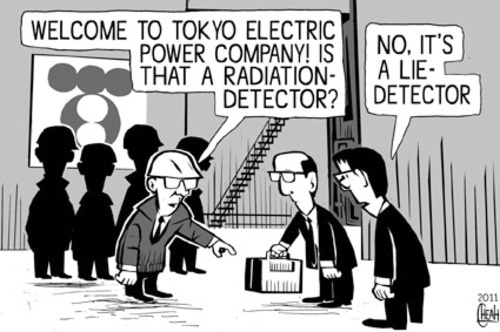Science and the Embrace of Uncertainty
科学と不確実性の受け容れ
“There are uncertain truths — even true statements that we may take to be false — but there are no uncertain certainties. Since we can never know anything for sure, it is simply not worth searching for certainty; but it is well worth searching for truth.” – Karl Popper, In Search of a Better World (1984)
Philosopher Karl Popper was famous for wrestling with what distinguishes science from other forms of knowledge-making. He argued, for example, that while Marxism and Freudian theories of psychology might be intellectually worthwhile, they were not scientific forms of knowledge because they weren’t open to falsification —- their logic made them largely immune to contrary evidence. In this view, scientific knowledge is so powerful because it is characterized by risk —- scientific claims leave themselves open to critique, they are provisional, and they invite the possibility of being proven wrong; a certain kind of uncertainty defines it.
How does this understanding of science help us make sense of an immediate disaster like the Fukushima Dai-Ichi nuclear disaster, or a long-term and evolving crisis like global climate change? In the case of the Fukushima Dai-Ichi event, both the Japanese government and TEPCO lost credibility and the public’s confidence because they withheld crucial information and denied key facts about the nuclear meltdown as it progressed. It was a highly dynamic and uncertain situation, but in those moments officials provided false certainty so as to protect their authority and perhaps also to avoid responsibility. But it is also true that others played a role in undermining public confidence in Japanese officials. For example Gregory Jaczko, chairman of the U.S. Nuclear Regulatory Commission, contradicted official Japanese reports in the days after the accident by claiming that there was no longer protective water in the spent fuel pools, when in fact there was. In both cases important uncertainty was masked by unrealistic confidence and fear of telling the truth. The facts did eventually come out —- misinformation as well as the unintentional errors of Japanese and American officials were revealed through further evidence. Yet, the aftermath of Fukushima was clearly a failure of science because the social component of scientific understanding was so poorly handled by those in charge.
The validity of science relies on knowledge being both collective and based on observable evidence —– this is why a scientific experiments must be repeatable to be meaningful, and also why public demonstrations of experiments were so important when modern science was establishing itself in the 16th and 17th centuries. The equivalent of such a public demonstrations today is the news conference, but in the Fukushima instance neither Japanese or American scientists were honest and transparent about what they didn’t know, leading to an unrealistic sense of safety for some Japanese and an unnecessary sense of fear for some Americans who thought clouds of lethal radiation would float over the Pacific at any moment.
Climate change science is also full of uncertainty, and especially in terms of predictions about future sea level rise or global temperature increases that depend on highly complex computer models. That predictive uncertainty, however, is very different than what we learn from historical data, which strongly supports the conclusion that human fossil fuel use is a primary cause of measured global warming. Of course no scientific inference can be proven 100%, and many conservative, pro-fossil fuel politicians in the United States have abused and twisted this philosophical point to claim that since all scientific theories are fundamentally uncertain, then the relationship between fossil fuels use and global warming is also uncertain and mostly speculative. Since there is no scientific “proof” of human’s having a role in global warming, they argue, there is no reason to change the way we use fossil fuels.
In the last two years the media have done a better job sharing the evidence for global warming and because of this the value and validity of that scientific knowledge has actually increased as more people come to understand the data, the theories, and the large-scale significance of climate change. Perhaps recent climate change science will become a case of scientific knowledge’s success, an example of collective knowledge in action. It remains to be seen. In response to this shifting public knowledge, the same conservative American politicians that before denied global warming now respond to journalists’ questions by saying, “Well, I am not a scientist, so I can’t comment.” It is a cowardly tactic, but maybe it is preferable to their earlier refusals to acknowledge the problem at all. However by denying their ability to even understand the science such politicians may be doing something even more dangerous — trying to escape from the responsibility of making decisions about our risky and unknown future. In fact, we all need to be scientists to whatever extent possible if we are going to meaningfully confront the uncertainty of climate change that we must all face as a global community.

References:
Popper, Karl. In Search of a Better World. London: Routledge, 1995.
“Shaken Faith” by Paul Blustein. Slate, September 26, 2013.
http://www.slate.com/articles/health_and_science/science/2013/09/nrc_response_to_fukushima_a_mistake_turned_public_opinion_against_japan.html
“Why Republicans Keep Telling Everyone They’re Not Scientists,” by Coral Davenport. The New York Times. October 30, 2014.
http://www.nytimes.com/2014/10/31/us/why-republicans-keep-telling-everyone-theyre-not-scientists.html?_r=0
Hadfield, Peter. “Let’s Have a Cup of Nice, Safe Plutonium” New Scientist, Issue 1910. January 29, 1994.
